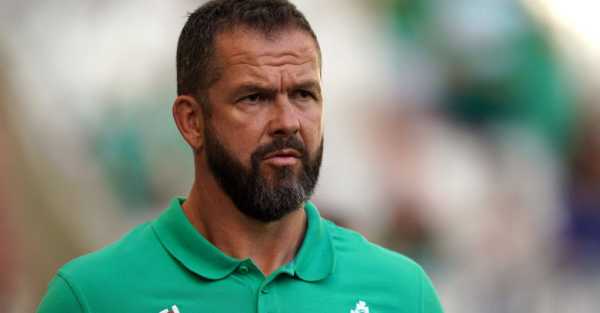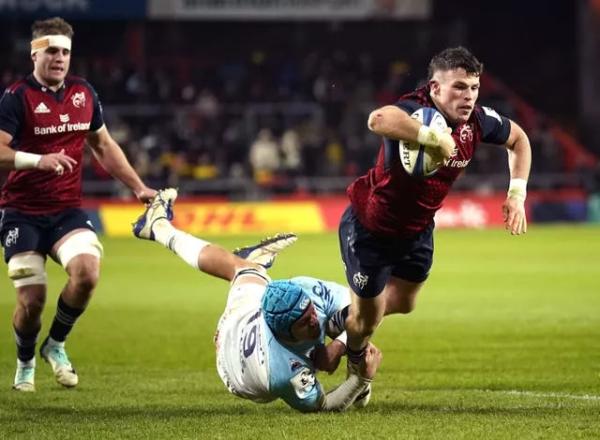
Andy Farrell has urged Ireland to be courageous when they take on formidable pre-tournament favourites France in a “mouth-watering” Guinness Six Nations curtain-raiser.
The reigning Grand Slam champions are seeking to return to winning ways on Friday evening in Marseille following an agonising 28-24 World Cup quarter-final exit to New Zealand.
Although Les Bleus are without star man Antoine Dupont for this year’s championship, Ireland’s title defence in the post-Johnny Sexton era could not have begun with a tougher fixture.
Head coach Farrell, whose four changes from the loss to the All Blacks on October 14 include starts for Test rookies Joe McCarthy, Calvin Nash and Jack Crowley, wants his players to embrace the challenge at Stade Velodrome.
“We all realise it’s a huge game. It’s mouth-watering, isn’t it?” the Englishman said, according to the Irish Examiner.
“It will be a great game to watch, there’s no doubt about that and the stadium, the atmosphere, it being the first game of the Six Nations after a World Cup, if you can’t get excited about that, you’re in the wrong place.
“For us, it’s just living up to our own expectations, we expect to perform on the big stage and it doesn’t really get any bigger than this one.
“The exciting thing for me is are we brave enough, have we got enough courage to go and do what we said we’re going to do and obviously we’re playing against a world-class side.

“But if you want to be successful, if you want to try to be the best, then you’ve got to beat the best in places like this and the occasion doesn’t get much bigger.
“We’ve got to relish those types of occasions and go after them.”
Farrell has picked 22-year-old Leinster lock McCarthy ahead of experienced duo James Ryan and Iain Henderson, while Munster wing Nash, 26, will also make his Six Nations debut, in place of the injured Mack Hansen.
Meanwhile, Munster number 10 Crowley, 24, will start in the championship for the first time following the retirement of former captain Sexton.
“He’s a confident kid, Jack,” said Farrell, who has selected Leinster’s Ciaran Frawley on the bench as back-up fly-half.

“It’s tough for young kids, especially with responsibilities like in his position but he feels very comfortable in being able to do that.
“How you run a week is pretty important and you’re making sure that the rest of your team-mates feel that you’re in control. He’s obviously learned a lot from Johnny in that regard.
“But the only thing that matters is the performance, isn’t it? Taking that preparation – that’s been good, very good actually, in camp – and transferring it to a performance that we all want to see.”
Centre Robbie Henshaw comes in for Leinster team-mate Garry Ringrose, who has a shoulder issue, in the other alteration to Ireland’s starting XV.
Sourse: breakingnews.ie